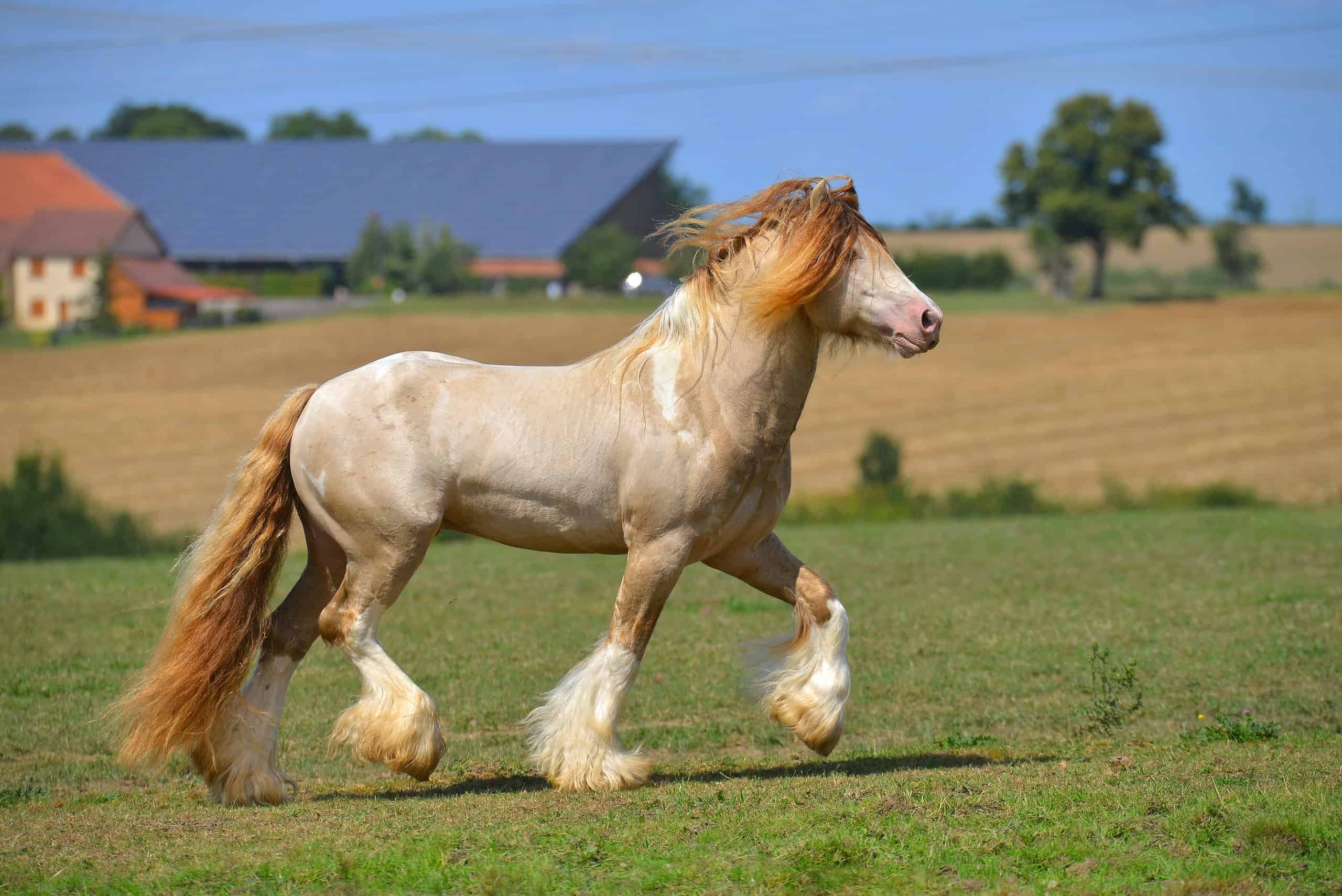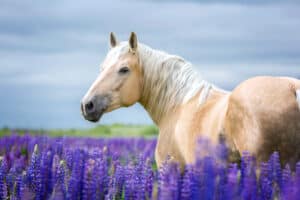So, you’re looking to bring a horse into your life? If you’re not careful or well researched, you could end up spending a fortune on a steed. And that animal might end up needing extravagant vet bills.
Thankfully, you can get a pet horse for an affordable rate if you make the right choices. This article will focus on purchase price and does not include care costs. The care costs will vary significantly from horse to horse.
While a steed will always be more expensive than other pets, here are the thirteen cheapest horses available.
Rescue
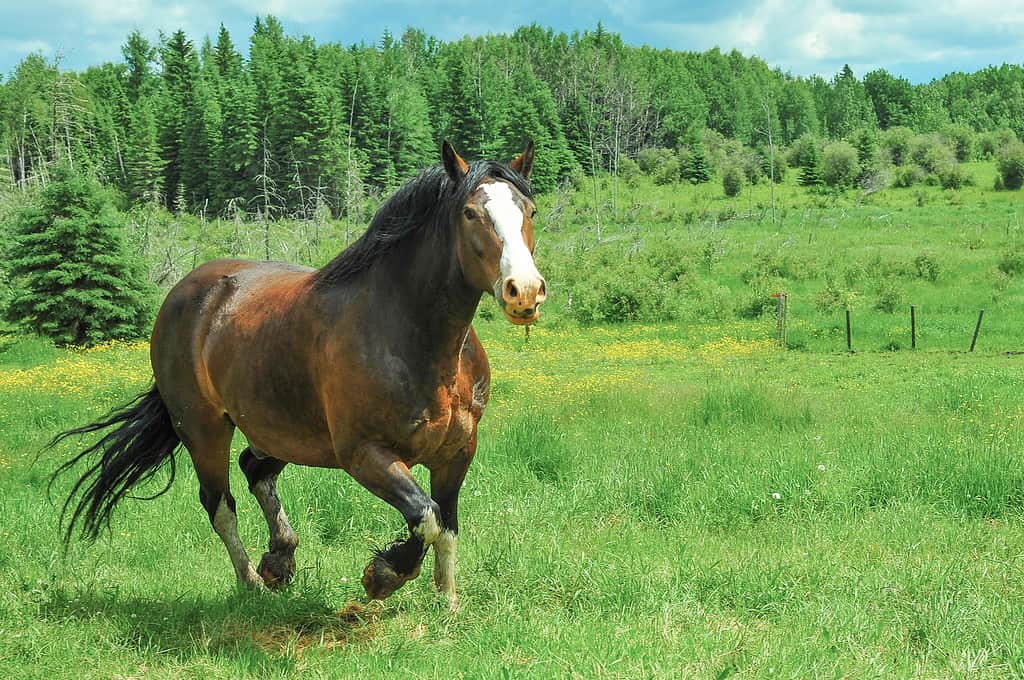
Rescue horses come in a variety of breeds.
©LaurieSH/iStock via Getty Images
If you decide to go with a rescue horse, the price you pay will vary. At most, you might spend $500 to $750 depending on the shelter. Sometimes, if you go to a horse abattoir, you can rescue a steed for a few hundred dollars.
When you look for a rescue, check the status of the animal. Sometimes they’ll be an illegal import confiscated. In this case, they might have gone through traumatic experiences and may not warm up to you. Other times it’ll be an injured racehorse that can’t carry humans on its back.
Consider your local climate as well, since potential rescues might not be able to withstand the temperatures.
Mustang
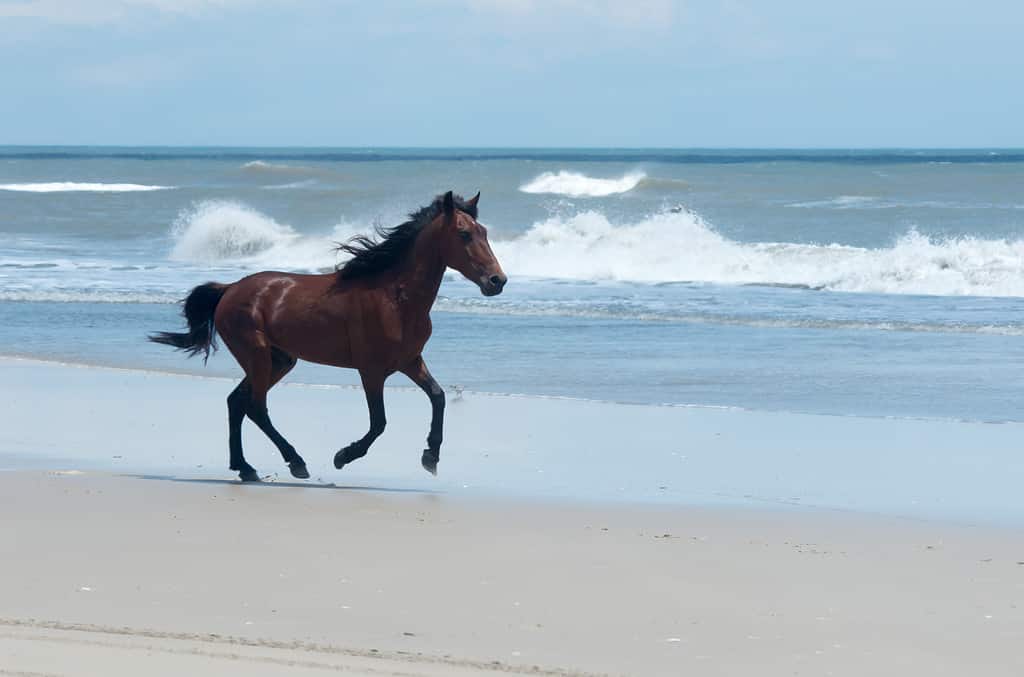
You can catch a
mustang
in the wild with permission from the U.S. government.
©BHamms/Shutterstock.com
Mustangs are wild horses that human have not tamed. They have undetermined genetic lineage and unknown health issues. You’ll want to get your mustang checked at a vet as soon as possible after purchase. They are one of the cheapest horses because of their availability.
If you decide to catch one yourself, whether through the state or an individual land hoarder, you’ll want to go through training (the steed itself will be free). Cowboys offer training courses to help you catch and tame a mustang.
If you don’t want to catch a horse, you can buy one from the U.S. government. Often, rescue programs put up the steeds for sale for as little as $25.
Appaloosa
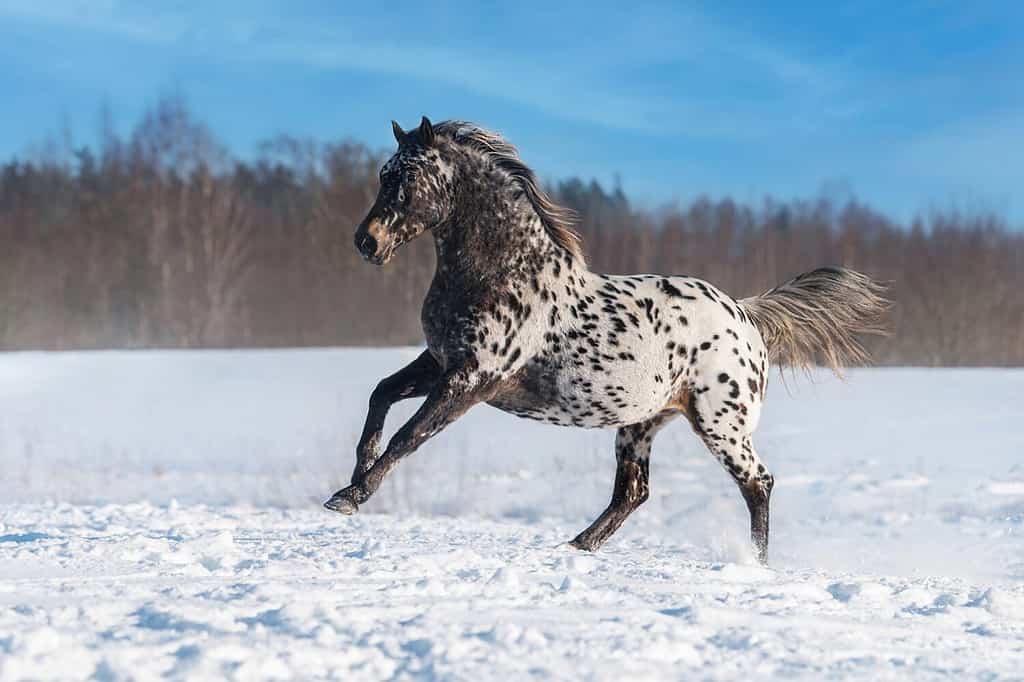
The Nez Perce Native Americans first partnered with these horses.
©Rita_Kochmarjova/Shutterstock.com
Another of the cheapest horses is the Appaloosa. You can find one of these steeds for less than $1000 if you look in the right places. These horses come with partial or wholly spotted coats. They generally have a friendly, loyal, and child-safe temperament.
The appaloosa has a lot of stamina and will be the perfect companion for long hikes, hunts, or adventures.
Paint
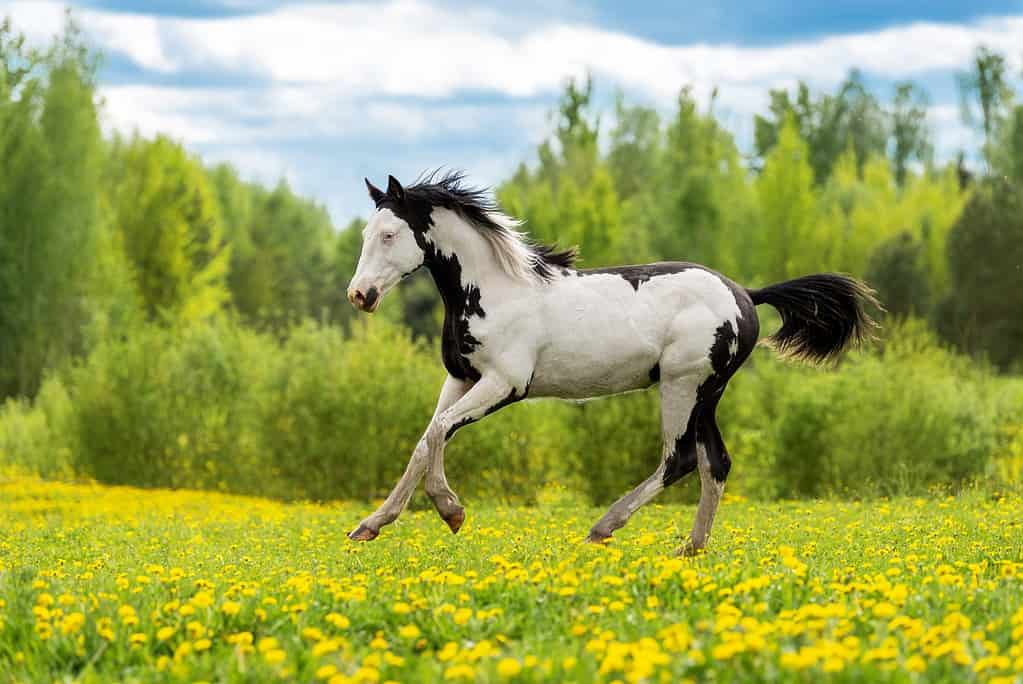
There is an American Paint Horse Association.
©Rita_Kochmarjova/Shutterstock.com
In most cases, the paint horse will be a pinto and have large patches of darks and whites. Because the horse community tends to be stuck-up about coat colors, the unique patches make paint horses cheaper than other breeds.
If you choose a horse registered with the American Paint Horse Association, it will be more expensive than an unregistered steed. For an unregistered horse, one of its parents must be registered for it to be recognized as a paint horse.
You can expect to pay between $750 to $1000 for an unregistered animal. Official paint horses can go up to $5000.
These animals are powerful and friendly with folks. The different color patterns include overo, tobiano, tovero, splash, frame, and sabino.
Grade
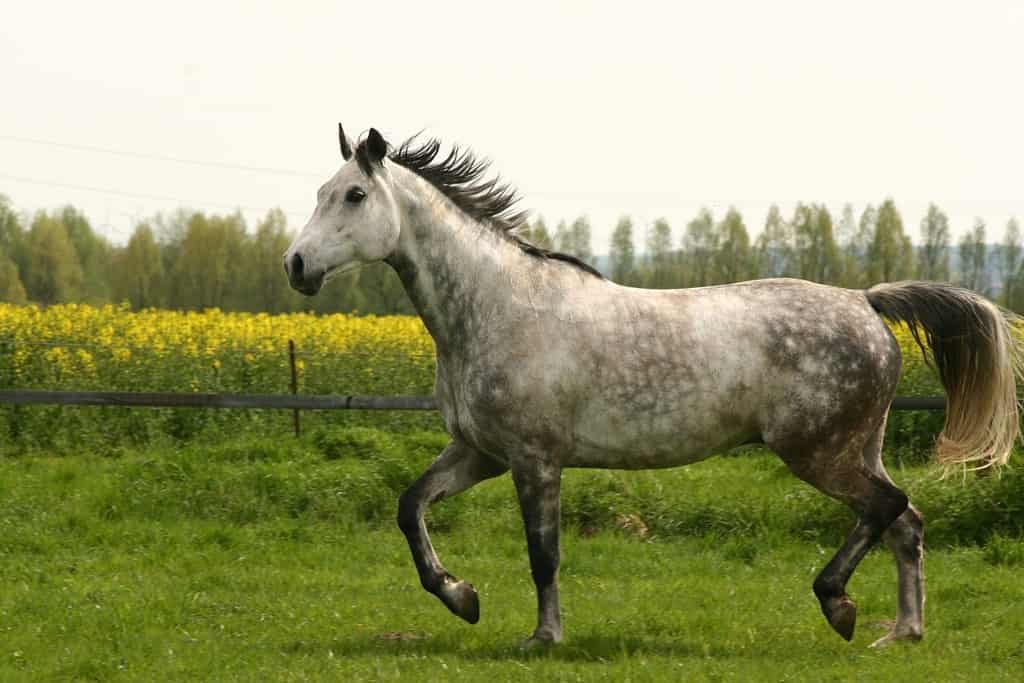
DNA tests for horses exist to help determine lineage.
©Sabine Hagedorn/Shutterstock.com
Racehorse breeding is a common event around the world. Hundreds of the animals are bred every year. Many do not end up being eligible to compete, mainly because they aren’t selectively bred.
When a horse breeder is not selective in the breeding process or if the horses mate naturally, grade horses are born. These are steeds with unclear lineage. Grade horses can also come from animals inseminated by multiple partners.
The price of a grade horse can range between $800 to $1000 in general. You might also find a cheaper option with some searching.
Arabian
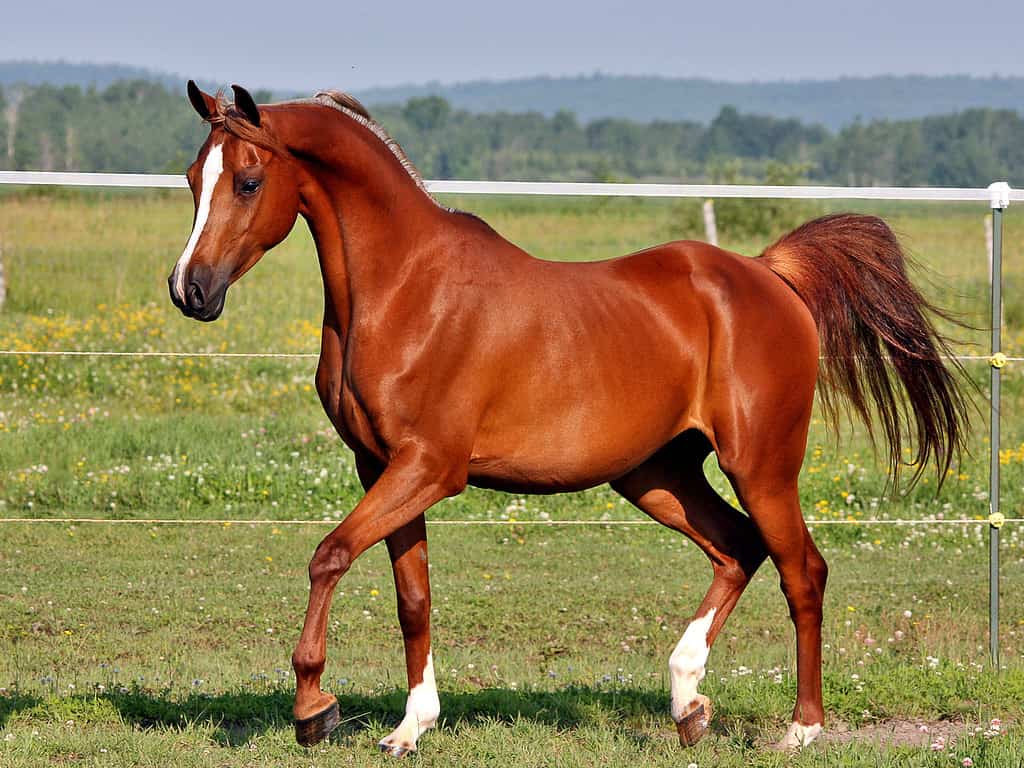
The Arabian breed is a compact, relatively small horse with a small head, protruding eyes, wide nostrils, marked withers, and a short back.
©MrcTeamStock/iStock via Getty Images
Another of the cheapest horse breeds is the Arabian. These horses have a slight built and profiles that look like concaved disks. Because of these traits, the steeds are sold for a relatively affordable rate.
In the U.S., racist attitudes also affect the price of horses. Contrary the racist preconceived notions, these are feisty but loving animals that can be great pets if well taken care of.
The Arabian also does not look like U.S. breeds of horse, which also makes them cheaper. Most notably, their tails sit high and shoot up then flow back.
You can purchase a sturdy and durable Arabian horse for around $1000 dollars.
Quarter
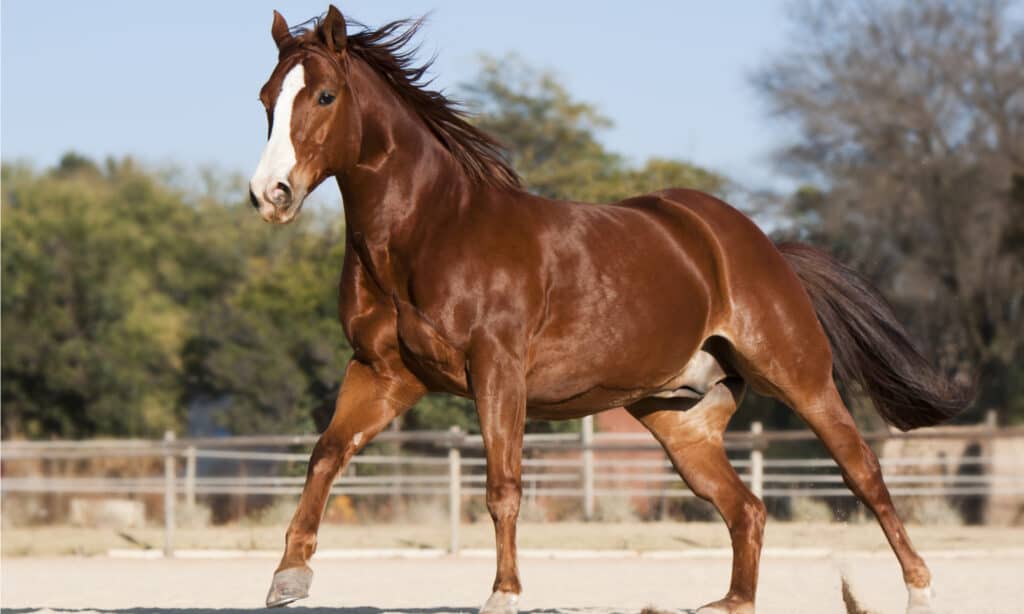
Quarter horses are generally fast, athletic, and friendly.
©Jaco Wiid/Shutterstock.com
Something the horse community cares about a lot, quite arbitrarily, is the “purity” of the horse’s lineage. Because of this, quarter horses are generally cheaper. That’s because quarter horses are a mix of four horse breeds.
The four breeds include Arabians, Native American breeds, mustangs, and thoroughbreds. Some quarters have Spanish and English genetic ancestry as well.
Because of this mod podge, the quarter horse is fast, athletic, powerful, and friendly. They usually have amenable personality and do well around children. Quarter horses are also known to have skills herding cattle.
You can purchase a quarter horse for around $1000, typically.
Crossbred
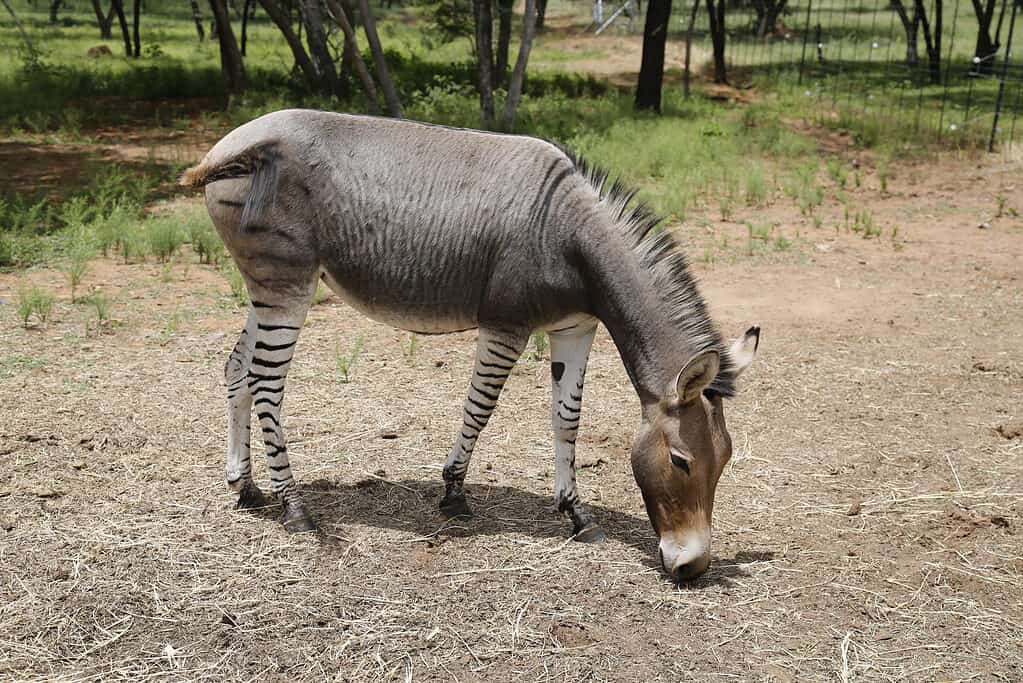
Horses are sometimes bred with other animal species.
©Shllabadibum Bubidibam/Shutterstock.com
Among the cheapest horses are the crossbred horses. These horses are generally a cross between a steed and another animal like a donkey or zebra. The reason these horses are more affordable is again due to the coat patterns. Roans, mottling, and uneven spotting on the coat make horses cheaper.
Another factor to consider is potential genetic or health issues due to the cross breeding. What you won’t spend up front, you might end up spending at the vet.
These animals, whether the ancestry is known or not, generally go for $1000. Sometimes they can be up to $3000.
Off the Track Thoroughbred
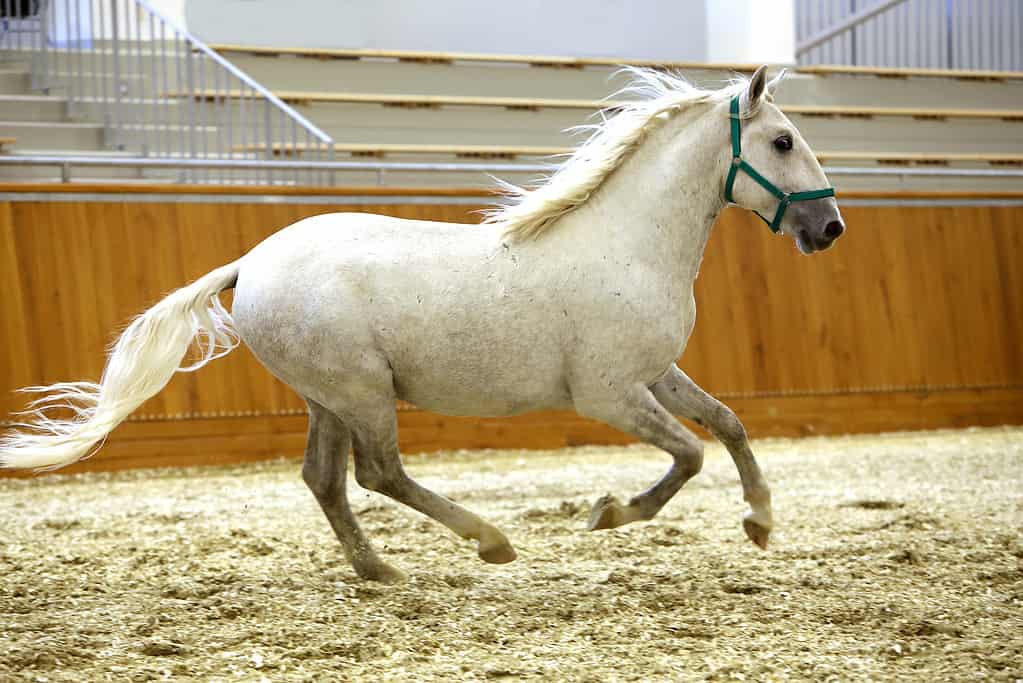
These racehorses retire after a few years.
©acceptfoto/iStock via Getty Images
You might be wondering why a thoroughbred is on the list of cheapest horses to keep as pets. Well, first off, thoroughbreds are not necessarily purebreds. The thoroughbred is a racehorse bred for speed, endurance, and behavior. Because of this, they might not have a “pure” lineage.
While thoroughbreds fetch high prices in their prime, they are only on the track for a few years. Afterwards, they are generally sold either for meat, by-products, or to rescuers. These horses might come with injuries or trauma due to the harsh and inhuman treatment of race animals.
In general, you’ll spend between $1000 and $3000 on an off the track thoroughbred horse.
Tennessee Walker Horse
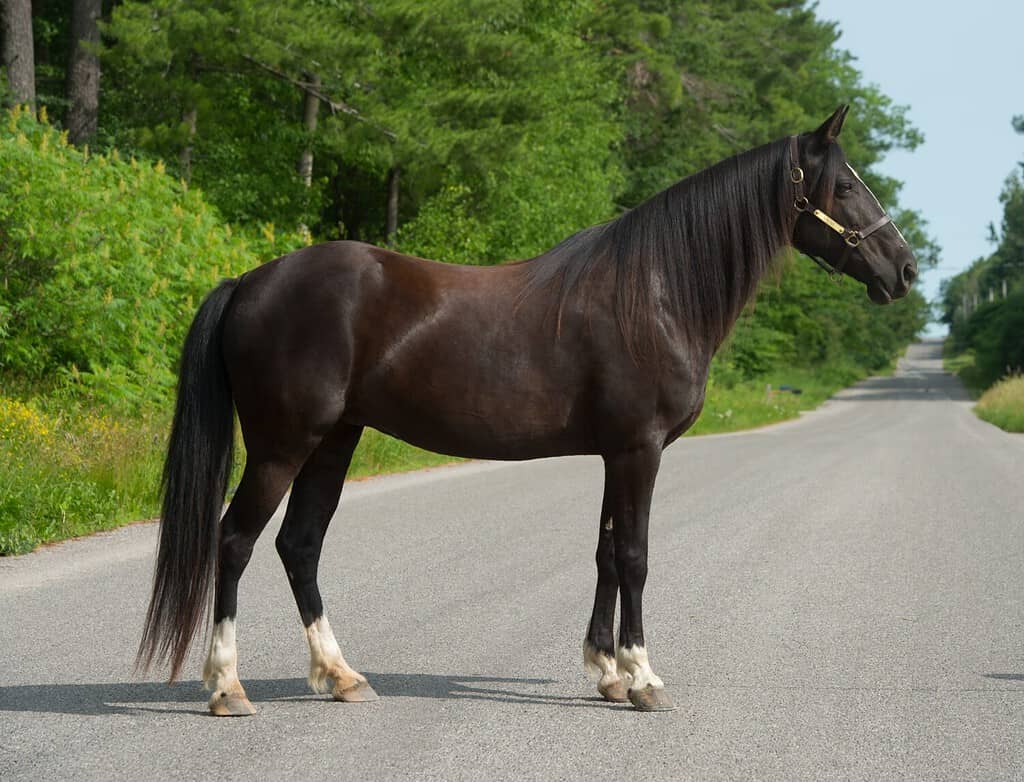
Tennessee Walkers can amble and pace, unlike some other horse species.
©Shawn Hamilton/Shutterstock.com
Horses are bred for specific purposes and with desired color patterns in mind. Most breeders want horses who excel in the four styles of steed movement, which are walking, trotting, cantering, and galloping. Some animals can move an additional two ways, pacing and ambling.
The Tennessee Walker is named for its ability to move in these two additional ways, and that is why they are one of the cheaper horse breeds. You will most likely spend between $1000 and $3500 on a Tennessee Walker.
Off the Track Standardbred
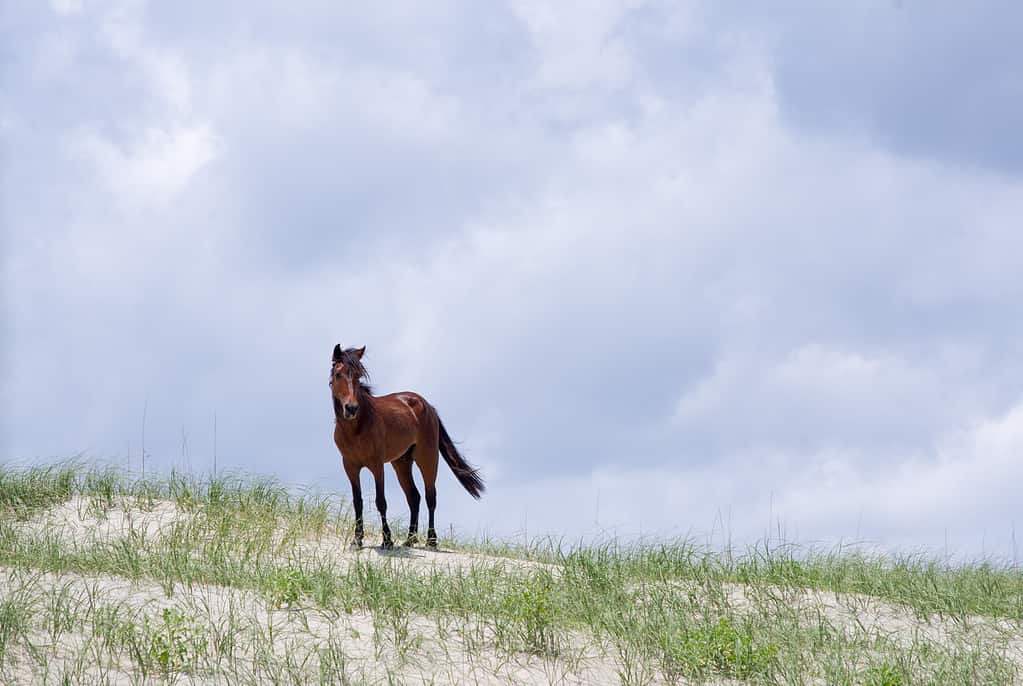
Breeders primed these competition horses for agility.
©BHamms/Shutterstock.com
Another type of racehorse, the standardbred, made it onto the list of cheapest horses to keep as pets. Again, they are not necessarily purebreds (which significantly lowers the price). The standardbred is bred for agility and jumping.
These steeds only last a few years on the track, where they are quite expensive, before they retire. At the end of their time, standardbreds go for meat, by-products, or as pets.
Because these animals spend years undergoing inhuman jumping practices, they often suffer injuries and are unable to carry humans on their backs. This makes them initially cheaper.
Off the track standardbreds go for $1000 in most cases. Sometimes they can go up to $5000.
Romani Vanners
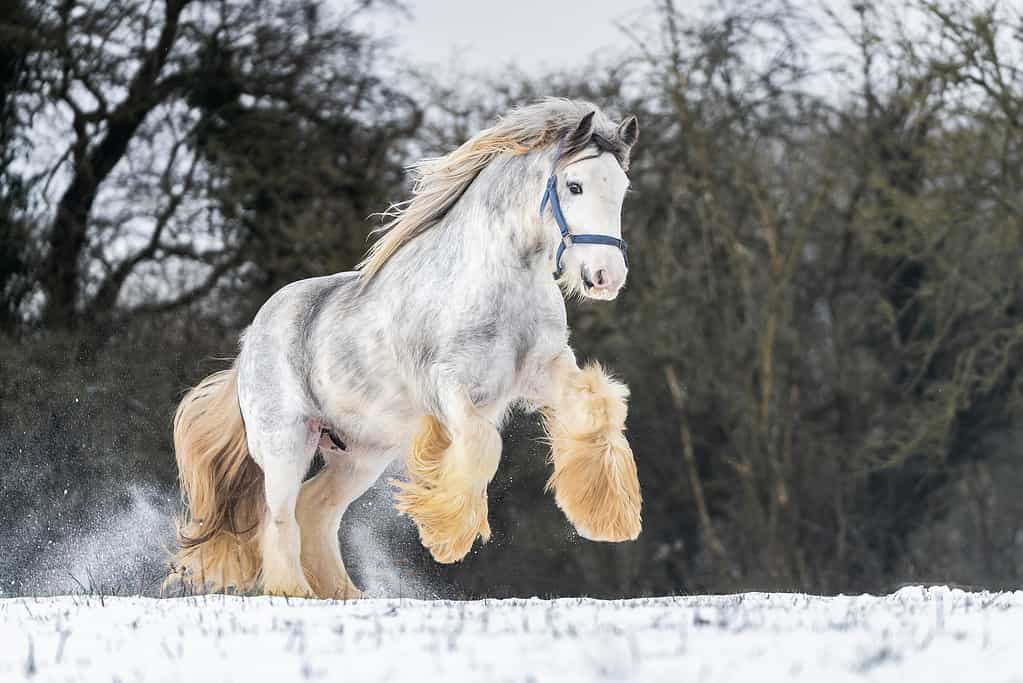
These horses are wonderful for beginners and young people.
©Matthew Troke/iStock via Getty Images
The Romani Vanner horse is a gorgeous, big-bodied, and stocky breed that has a luxurious mane. Their feathered and large hooves provide them stability. This breed has endurance, a friendly temperament, and can carry heavy loads.
They are generally sold for $5000, but you can find cheaper options if you look in the right places.
Summary of the 13 Cheapest Horses to Keep as Pets
| Horse Breed | Buying Price | |
|---|---|---|
| 1. | Rescue | Varies |
| 2. | Mustang | $0 – $125 |
| 3. | Appaloosa | $750 – $1000 |
| 4. | Paint | $750 – $5000 |
| 5. | Grade | $800 – $1000 |
| 6. | Arabian | $1000 |
| 7. | Quarter | $1000 |
| 8. | Crossbred | $1000 – $3000 |
| 9. | Off the Track Thoroughbred | $1000 – $3000 |
| 10. | Tennessee Walker Horse | $1000 – $3500 |
| 11. | Off the Track Standardbred | $1000 – $5000 |
| 12. | Romani Vanners | $5000 |
Thank you for reading! Have some feedback for us? Contact the AZ Animals editorial team.

